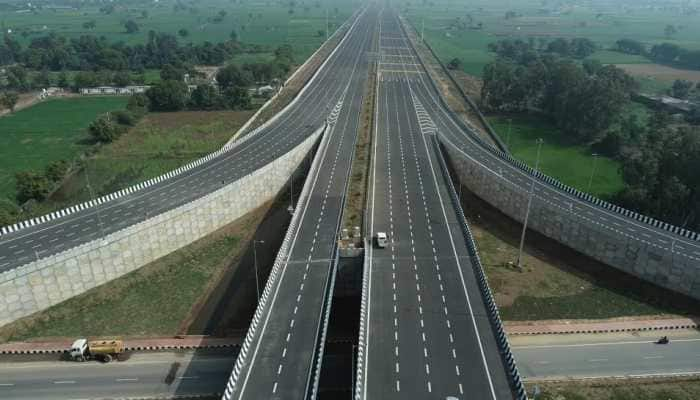SC stays execution of Devender Pal Singh Bhullar
The Supreme Court on Friday stayed the execution of 1993 Delhi blast terror convict Devender Pal Singh Bhullar.
Trending Photos
)
Zee Media Bureau
New Delhi: The Supreme Court on Friday stayed the execution of 1993 Delhi blast terror convict Devender Pal Singh Bhullar.
The apex court issued notices to the Centre and Delhi government and sought their views on the matter. The court also asked for a report on Bhullar`s mental condition.
Bhullar had filed a curative petition seeking commutation of his death sentence to life imprisonment. The petition was pending since September 2013.
The court will take up the case for further hearing on February 19.
Senior counsel Tulsi had told the court the April 12, 2013 judgement of declining to commute Bhullar`s death sentence to life imprisonment on the ground that he was convicted under the terror law has become per incuriem in the light of three judges` verdict.
The bench headed by Chief Justice Sathasivam ruled that delay in deciding the mercy petition by the president and mental illness of the death row convict were grounds for commuting death sentence to life imprisonment.
The court had held that insanity/mental illness/schizophrenia could be the grounds for seeking commutation of death sentence to life imprisonment.
The three judges` bench also said that while commuting the death sentence to life imprisonment on grounds of inordinate delay in deciding the mercy petition by the president, the court`s decision would not be coloured by the consideration whether the person on death row was convicted under the provision of the Indian Penal Code or the terror law, Terrorist and Disruptive Activities (Prevention) Act (TADA).
The court while upturning the earlier judgement of April 12, 2013, in respect of Bhullar, had said: "We are of the view that unexplained delay is one of the grounds for commutation of sentence of death to life imprisonment and the said supervening circumstance is applicable to all types of cases, including the offences under TADA. The only aspect the courts have to satisfy is that the delay must be unreasonable and unexplained or inordinate at the hands of the executive."
The apex court, by its April 12, 2013 verdict, while rejecting Bhullar`s plea for commuting his death sentence to life imprisonment, had said, "If the enormity of the crime is such that a large number of innocent people are killed without rhyme or reason, the exercise of power by the president or the governor, as the case may be, not to entertain the prayer for mercy in such cases cannot be characterised as arbitrary or unreasonable and the court cannot exercise power of judicial review only on the ground of undue delay.”
In the case of Bhullar, it was contended that not only there was delay in deciding his mercy petition but he was also mentally ill and undergoing treatment in a mental hospital. It has also been said the apex court verdict confirming his death sentence was a split verdict majority confirming his death sentence.
Bhullar was given capital punishment for the September 11, 1993 blast at the Youth Congress (YC) office on Raisina Road, New Delhi, a stone`s throw from Parliament House, which left nine dead. The attack was targeted against then YC leader Maninderjeet Singh Bitta.
With PTI inputs
Stay informed on all the latest news, real-time breaking news updates, and follow all the important headlines in india news and world News on Zee News.
Advertisement
Live Tv
Advertisement







)
)
)
)
)
)
)
)
)
)
